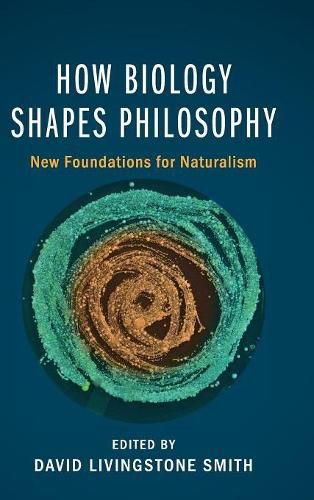Readings Newsletter
Become a Readings Member to make your shopping experience even easier.
Sign in or sign up for free!
You’re not far away from qualifying for FREE standard shipping within Australia
You’ve qualified for FREE standard shipping within Australia
The cart is loading…






How Biology Shapes Philosophy is a seminal contribution to the emerging field of biophilosophy. It brings together work by philosophers who draw on biology to address traditional and not so traditional philosophical questions and concerns. Thirteen essays by leading figures in the field explore the biological dimensions of ethics, metaphysics, epistemology, gender, semantics, rationality, representation, and consciousness, as well as the misappropriation of biology by philosophers, allowing the reader to critically interrogate the relevance of biology for philosophy. Both rigorous and accessible, the essays illuminate philosophy and help us to acquire a deeper understanding of the human condition. This volume will be of interest to philosophers, biologists, social scientists, and other readers with an interest in bringing science and the humanities together.
$9.00 standard shipping within Australia
FREE standard shipping within Australia for orders over $100.00
Express & International shipping calculated at checkout
How Biology Shapes Philosophy is a seminal contribution to the emerging field of biophilosophy. It brings together work by philosophers who draw on biology to address traditional and not so traditional philosophical questions and concerns. Thirteen essays by leading figures in the field explore the biological dimensions of ethics, metaphysics, epistemology, gender, semantics, rationality, representation, and consciousness, as well as the misappropriation of biology by philosophers, allowing the reader to critically interrogate the relevance of biology for philosophy. Both rigorous and accessible, the essays illuminate philosophy and help us to acquire a deeper understanding of the human condition. This volume will be of interest to philosophers, biologists, social scientists, and other readers with an interest in bringing science and the humanities together.